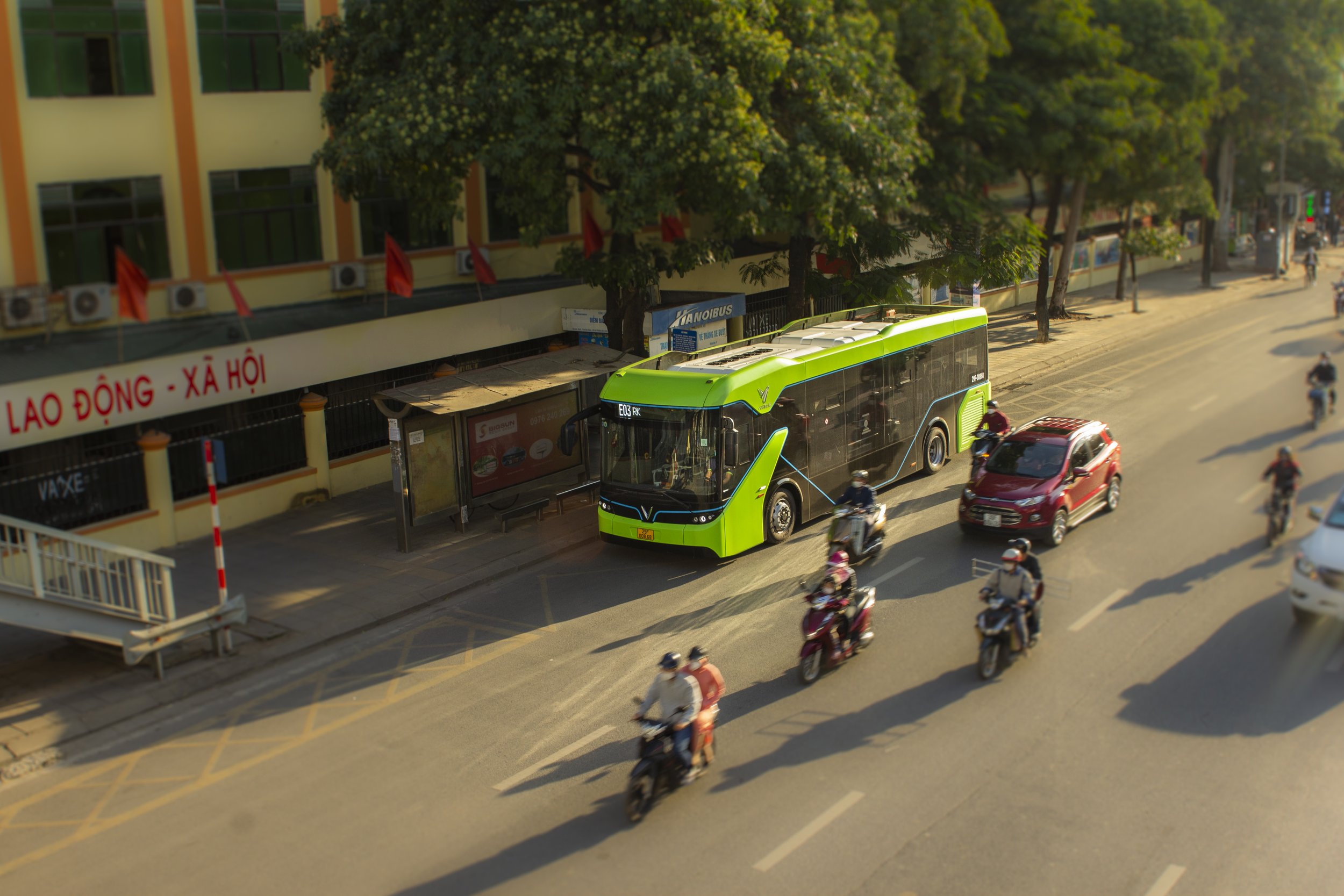Greening the Future: Hanoi Embraces Sustainable Mobility with Economic Technical Norms for Large Electric Buses
Hanoi, 21st of September, 2023, Hanoi City People's Committee officially issued Decision No. 23/2023/QĐ-UBND on introducing economic-technical norms for large electric buses within the city. This decision represents a significant milestone in the city's endeavours to enhance its public transport system, aligning with its commitment to environmental protection.
Given the escalating concerns regarding environmental degradation and mounting traffic congestion, the adoption of green technology in public passenger transport emerges as a pivotal measure to curtail the consumption of fossil fuels and mitigate greenhouse gas emissions. In this regard, the development of electric buses garners substantial attention and prioritisation from many countries due to their potential for cost savings, the absence of pollutant emissions inherent in fossil-fuel vehicles, and the reduction of noise pollution.
According to the statistics from the Hanoi Department of Transport, up to now, there are presently 2,279 buses operating within the city. Among these, 277 buses are powered by environmentally friendly energy sources, constituting 13.6% of the total bus fleet. The majority, amounting to over 2,000 vehicles (86.8%), still rely on diesel fuel, necessitating a transition to cleaner energy alternatives. Following Decision 876/QD-TTg in 2022 on the approval of the Action programme for transition to green energy and mitigation of carbon dioxide and methane emissions from transport, the urban transport domain is directed towards a future where starting from 2025, 100% of newly procured and replacement buses will be powered by electricity and other green energy sources. By 2030, it is anticipated that a minimum of 50% of the vehicle fleet will have transitioned to electricity and green energy, with the ultimate objective of achieving full electrification of the entire bus fleet by 2050.
Within the framework of NDC Transport Initiative for Asia (NDC-TIA), funded by the Federal Ministry for Economic Affairs and Climate Action, Germany through the International Climate Initiative (IKI), the Deutsche Gesellschaft für Internationale Zusammenarbeit (GIZ) has been actively assisting both Hanoi and Ho Chi Minh City in formulating a comprehensive set of economic-technical norms and unit pricing for public passenger transport services by electric buses. This endeavour involves a meticulous process of data collection from international sources and experiences derived from the deployment of electric buses, with a particular focus on nations sharing similar circumstances with Viet Nam. Additionally, surveys and operational assessments have been carried out to facilitate the formulation of precise economic and technical guidelines and unit pricing.
The promulgation of economic-technical norms for electric buses in Hanoi is an important basis for continuing to develop unit prices for public passenger transport by electric bus in the city. This, in turn, lends substantial support to various phases of the electric bus subsidy programme, encompassing procurement, tendering, acceptance, and expenditure settlement. At the same time, it offers invaluable insights and best practices that can inform Ho Chi Minh City's forthcoming efforts in devising its own economic-technical norms and unit pricing.
Author: Hang Nguyen

